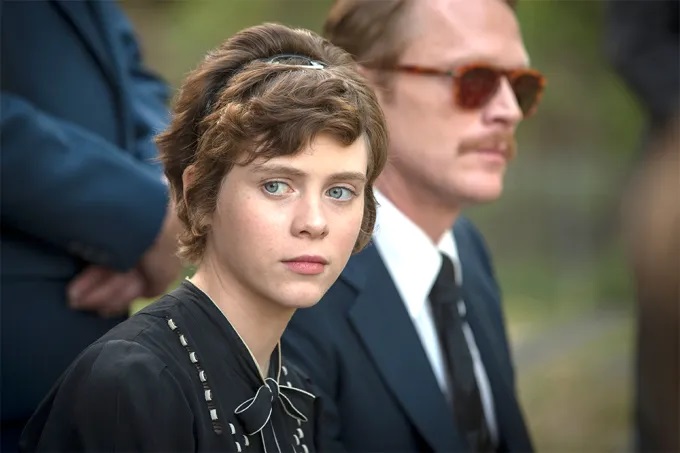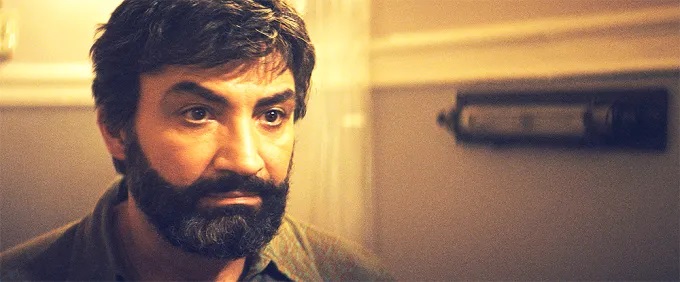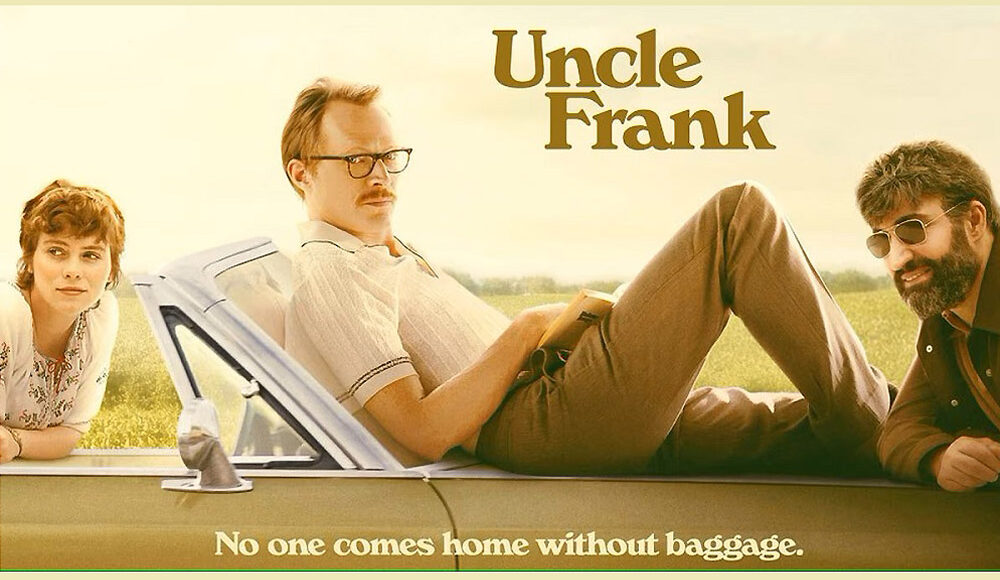By Nicusor Ciumacencu — Before any sort of analyzing and deconstructing, Uncle Frank, written and directed by Alan Ball, is pleasant to watch, literally; its color palette is a joy to the eye. Just to see the beauty of fashion and cars, down to the beautiful simplicity of getting an actual key when checking into a motel, is provoking.
As the brain puts that in balance with the current upsurge of major failures in car design and fashion, the eye is going to enjoy Uncle Frank, if that eye is one that cares for such details.
Furthermore, I daresay it’s good to watch, at times, something that doesn’t cause you to think so hard nor send you into the extremely painful rudimentariness that involves vulgarity or social issues that shouldn’t be on the screen. (I’ve always believed in improving our cultural standards even at the risk of ignoring the preferences of those of low society. After all, back in the 18th, 19th century you either listened to Mozart or you listened to no one, therefore another Mozart would rise because there was no other example to follow).
Uncle Frank is in that accepted average. I get lost in those colors, cars, clothes. I’m a nostalgia buff for the ‘60s. The confluence of tones and designs of those years is far more exciting than the confluence of shades and motifs of the 2000s. The movie gets me with that. And with the story.
About the story. I loved Wally (Peter Macdissi), his innocence and good heartedness captured me from beginning to end. Wally comes from Saudi Arabia. He’s truly in love with Frank (Paul Bettany) and I truly can’t believe that 40 years later —from that moment to now— in Saudi Arabia, a gay person is still tortured and killed for being just that.

Amazon Studios
(More on this: Uncle Frank might not even be available in Saudi Arabia, even though the aspect of a slim connection with an isolated country via a movie character should bring cheers to those living there busy with God 24/7.)
The fact that almost everything about this story is a cliche isn’t that painful. There are surprises in the movie and they’re wonderful. I didn’t get it right from the start that Frank is gay, nor that Wally is the one who actually cooked the delicious meals whenever Frank’s family was visiting from the South. I did figure out that in the car following them — Frank with his niece, on the way to South Carolina — was Wally.
Wally is like a baby lamb constantly looking for his mama, while mama Frank wants to be more independent. It’s clear that Frank is the intellectual side of the One which they form, while Wally is the glue keeping Frank together.
The climax? The moment of reading the father’s will is paramount and unexpected. I didn’t think someone could be so cruel in a dying wish, to leave the world with such hate. But I guess I’m ignorant when it comes to how people don’t care and how leaving life means nothing to them. What’s a little hate for a gay guy, after all? Once you really believe God is hating gays, you can hate them as well, pretty simple.
Upon hearing “the goodies” his father left for him; Frank is shattered. He drives off toward the nearby lake. We see his clothes on the shore and a bit later everyone thinks he drowned, like his first boyfriend much earlier in his youth; a moment that keeps flashing in Frank’s mind. But Frank reappears just as all the others’ shock was not so believable and the story couldn’t just end there.
The story though starts with Beth Bledsoe (Sophia Lillis), Frank’s niece. She is Shy Southerness and this condition follows her to New York where she begins a new life as a college student. The same college where Uncle Frank is teaching. From the start, New York seems to be too much for her. The clash, with her upbringing, is evident and Beth is isolated everywhere she goes. In the cafeteria, a boy approaches, but it turns out his intentions are not what she thinks or wants. Lacking bravery, she rejects exploration and goes looking for her uncle; eventually, she and the new boy go uninvited to a party hosted by Uncle Frank.

Amazon Studios
The party is where the movie begins. We get the story set straight. Uncle Frank is gay, he lives with his boyfriend Wally, they smoke marijuana, and none of these define normality to Beth, but she accepts it and even promises Frank she’ll not say anything to the family. Her new boyfriend turns out to be gay too and, with that, he disappears from the movie, and Beth is once more alone. But the patriarch of the Bledsoe clan dies, Uncle Frank’s father, and the journey to his funeral and the grand unraveling begins.
There is the usual happy ending with almost everyone accepting Frank and Wally and the sense of redemption fills the screen.
Maybe the themes brought up in this movie are not stellar in the way in which they’re presented, but they don’t suck either. Maybe the acting is not marvelous in the way it replicates the human behavior of 1969, but you couldn’t tell. Maybe the family reunion around the reading of the will has more hate than it ever had, and so what. Nothing is perfect and this movie will not be. Or, in another summarization, this movie holds the colors that we’ve lost and the rights that we’ve gained. But perfection is also boring most of the time, and for a movie to be good to watch, to be relaxing, might be a better thing than whatever message it sends or whatever cliché it breaks, and in this category Uncle Frank successfully fits.
___________________________________________
Uncle Frank
Written and Directed by: Alan Ball





